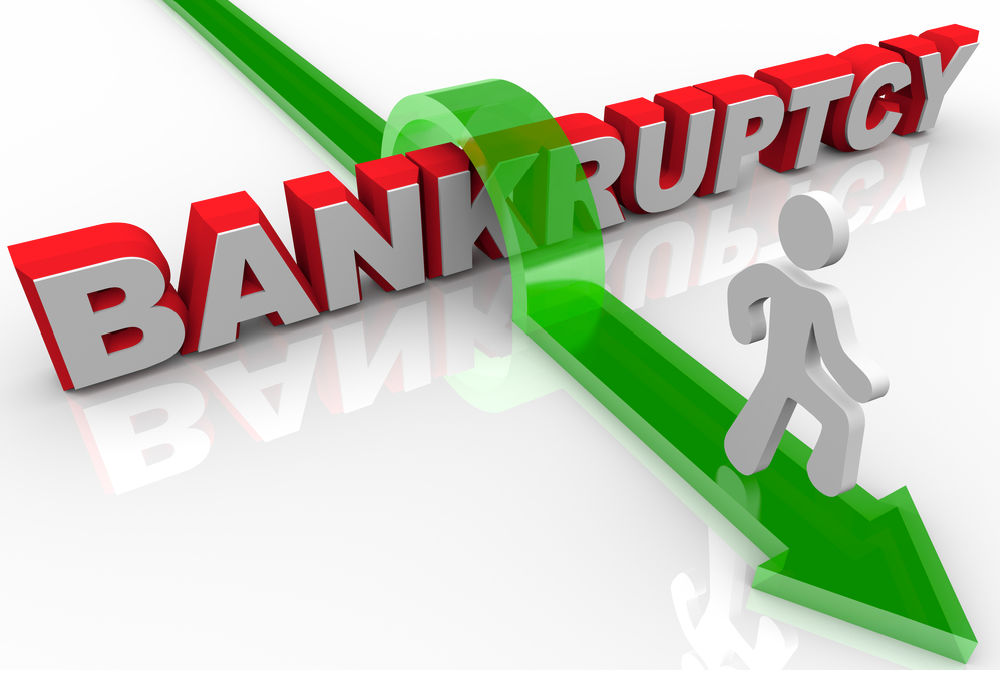 Filing for bankruptcy can be a life-changing decision, providing much-needed relief from overwhelming debt. However, it also has a significant impact on your credit score and financial future. Remember, if you’re going through a divorce you should speak to a local divorce attorney in Alabaster, or wherever you live. If you need financial relief, you should speak with a bankruptcy attorney where you live. In this blog post, we’ll discuss how to rebuild your credit after filing bankruptcy in the state of Alabama and share tips to help you avoid common pitfalls and prevent future financial issues.
Filing for bankruptcy can be a life-changing decision, providing much-needed relief from overwhelming debt. However, it also has a significant impact on your credit score and financial future. Remember, if you’re going through a divorce you should speak to a local divorce attorney in Alabaster, or wherever you live. If you need financial relief, you should speak with a bankruptcy attorney where you live. In this blog post, we’ll discuss how to rebuild your credit after filing bankruptcy in the state of Alabama and share tips to help you avoid common pitfalls and prevent future financial issues.
Understanding Bankruptcy and Its Effects on Credit
Bankruptcy is a legal process that allows individuals or businesses struggling with debt to seek relief and regain control of their finances. The two most common types of consumer bankruptcy are Chapter 7 (liquidation) and Chapter 13 (reorganization) bankruptcies. While bankruptcy can provide a fresh financial start, it has a significant impact on your credit score. A Chapter 7 bankruptcy remains on your credit report for ten years, while a Chapter 13 bankruptcy stays for seven years.
Steps to Rebuild Credit After Bankruptcy
Rebuilding your credit after bankruptcy can be challenging, but with patience, discipline, and a solid plan, you can gradually restore your creditworthiness. Here are the steps to help you get back on track:
Begin by obtaining a copy of your credit report from each of the three major credit bureaus (Experian, TransUnion, and Equifax). Carefully review your reports for errors or discrepancies, and dispute any inaccuracies. Regularly monitoring your credit is essential during the credit rebuilding process. Keep an eye on your credit reports, review them for accuracy, and stay alert for any signs of identity theft or fraudulent activity. Monitoring your credit allows you to track your progress and take action if necessary.
Start by obtaining copies of your credit reports from the major credit bureaus (Equifax, Experian, and TransUnion). Carefully review them to ensure accuracy and identify any discrepancies related to your bankruptcy. Dispute any errors you find to have them corrected promptly.
Developing a realistic budget is key to managing your finances effectively. Take into account your income, necessary expenses, and debt repayment obligations. Stick to your budget and make timely payments to demonstrate responsible financial behavior.
Secured credit cards can be instrumental in rebuilding your credit after bankruptcy. With a secured card, you provide a deposit that serves as collateral for your credit limit. Use the card responsibly, keeping your utilization low and making timely payments. Over time, this will demonstrate your creditworthiness and help rebuild your credit.
Consistently making on-time payments is crucial for rebuilding your credit. This applies to all your financial obligations, including secured debts (e.g., car loans) and unsecured debts (e.g. credit cards). Make sure to pay all your bills on time, including utilities, rent, and loans. Set up reminders or automatic payments to ensure you don’t miss any due dates.
Maintaining a low credit utilization ratio can positively impact your credit score. Aim to keep your balances well below your credit limits, ideally below 30%. This shows lenders that you can manage credit responsibly and reduces the risk of overextending yourself financially.
Credit-builder loans are designed to help individuals rebuild credit. These loans typically have low credit requirements and are secured by funds held in a savings account or certificate of deposit (CD). As you make timely payments, the positive activity is reported to credit bureaus, enhancing your creditworthiness.
Rebuilding credit takes time, so it’s important to be patient and persistent in your efforts. Consistently practicing responsible financial habits and demonstrating positive credit behavior will gradually improve your credit score. Avoid taking on excessive debt and focus on building a solid financial foundation.
Having a diverse mix of credit accounts, such as credit cards, installment loans, and mortgages, can improve your credit score. However, don’t open too many new accounts at once, as this can negatively impact your credit and create additional debt.
Tips for Avoiding Common Pitfalls and Preventing Future Financial Issues
Create a Budget: Establishing a budget and tracking your expenses can help you regain control of your finances and prevent future debt problems.
Build an Emergency Fund: Save money for unexpected expenses, such as medical bills or car repairs, to avoid relying on credit cards or loans in emergencies.
Educate Yourself on Personal Finance: Learn about personal finance topics, such as saving, investing, and debt management, to make informed financial decisions and avoid common pitfalls.
Rebuilding credit after bankruptcy in Alabama is a journey that requires discipline, patience, and persistence. By following these practical steps, including understanding your credit report, creating a budget, opening a secured credit card, making timely payments, keeping credit utilization low, applying for a credit-builder loan, and monitoring your credit, you can gradually rebuild your creditworthiness. Remember, bankruptcy is a stepping stone towards a fresh start, and with responsible financial habits, you can pave the way to a brighter financial future.
 2018 ·
2018 ·
Leave a Reply